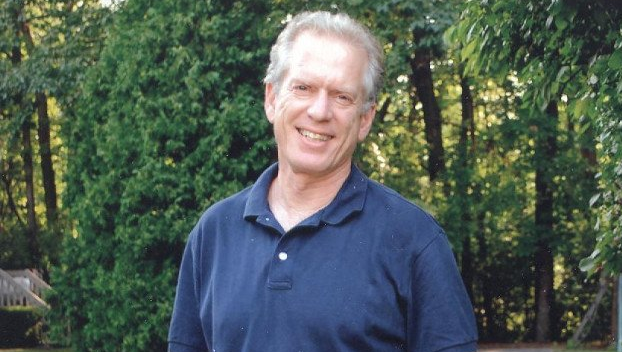#thankyourmentor: Wharton professor and author pays tribute to his mentor

Aug 4, 2015
In this series, professionals thank those who helped them reach where they are today. Read the posts here, then write your own. Use #ThankYourMentor and @mention your mentor when sharing.
To millions of beloved readers, Jeff Zaslow was the advice columnist who replaced Ann Landers and the bestselling author who captured our hearts with moving books like The Last Lecture with Randy Pausch. But to me and countless other writers, Jeff was a devoted mentor who gave countless hours of his time and energy to help aspiring authors.
When I was in middle school, Jeff and his family moved in across the street from our house in Michigan. At a neighborhood barbecue, I was a shy, nerdy kid shooting baskets alone. Jeff walked over, introduced himself, and challenged me to a game of HORSE. He took a genuine interest in getting to know me, asking about my hobbies and crushes. Although we had just met, I had the uncanny sense that this new neighbor truly cared about me. Suspiciously, he lost that game of HORSE very, very badly.
Looking back, Jeff was the first adult who treated me like a peer, and it helped me come out of my shell. At the time, I had no idea that Jeff would become a mentor to me — or that I would enter the writing profession.
Two decades later, I decided to write my first book. In search of guidance on developing a proposal, I reached out to Jeff. Less than three hours later, his reply landed in my inbox. He invited me to call his cellphone any time, day or night. He asked me thoughtful questions and listened to my responses. I explained that I was interested in writing about why people help others. “You haven’t found the forest in the trees yet,” he confided, “but I think there’s potential for a book here.” He suggested trying to articulate my message in a single sentence. “What’s the big, surprising idea?”
Three days later, the answer hit me. The book was going to be about the surprising success of people like Jeff, who consistently helped others without expecting anything in return. Instead of achieving success and then giving back, is it possible that you could attain success by giving first? To paraphrase Thomas Jefferson, if you use your candle to light mine, I get light without darkening you.
Months later, when I was preparing to meet with publishers, my heart was racing. Jeff kindly reviewed my pitch and boosted my confidence with a quip: “The little schnitzel across the street is going to be famous!”
Two weeks later, Jeff launched his latest book, The Magic Room. Despite being scheduled around the clock, he sent me a note to check in on how the meetings with publishers went. Just like the first time I met him, I was overwhelmed by the fact that he cared. He helped me choose the right publisher and added, “Here’s hoping you’re the next Malcolm Gladwell.”
When I started writing, I relied on Jeff’s work as a model for creating narratives that speak to readers’ hearts along with opening their minds, and his personal example as a reminder of what it meant to put other people first. There was the time in 1983 when he gave the croissant out of his mouth to a homeless person. There was the Zazz Bash, an annual singles party that he created for charity — and led to 78 marriages. In his books, he was always shining a spotlight on others. And there was the time when he ran into my dad at a local store. Jeff had just released a new book and had a stack of them sitting at home in our neighborhood. But Jeff marched up to the register and paid for a copy of his own book, autographing it so my dad didn’t have to wait for a signed edition.
Despite the fact that he gave advice for a living, Jeff never assumed that he knew the right course of action for anyone else. This humility was visible early in his career. In his late twenties, while writing a story for the Wall Street Journal about the contest to replace Ann Landers, he decided to enter it on a lark. When an interviewer told him he was underqualified, he replied: “I may be 28, but I have the wisdom of a 29-year-old.”
When students ask me how they can pay their mentors back, I challenge them to think about it differently. Mentoring is a gift, and their job is to receive it with gratitude. How can they show their mentors that they’ve made a difference?
In 2012, before I finished writing my book, Jeff lost his life in a tragic car accident. I missed the opportunity to tell him what an impact he had on me — not only as a writer, but as a role model for how to live a good life.
Jeff Zaslow never got the chance to give his own last lecture. I don’t know what he would have said, but I know how he would have made you feel. He would have dazzled you with humor, enlightened you with insight, and inspired you to pursue and savor the most meaningful moments in life.
 I dedicated my book to him, but it seems that the most powerful way to honor Jeff’s memory is to share the wisdom that he imparted through his actions. He taught me four timeless lessons about mentoring:
I dedicated my book to him, but it seems that the most powerful way to honor Jeff’s memory is to share the wisdom that he imparted through his actions. He taught me four timeless lessons about mentoring:
1. Great mentors don’t give answers. They ask questions.
2. Great mentors are proactive, not reactive. They don’t just respond to outreach; they reach out to their mentees.
3. Great mentors see more potential in their mentees than their mentees see in themselves.
4. Great mentors focus on their mentees’ success, not on their own.
 Since we lost Jeff, people have come out of the woodwork to share how much his generosity meant to them. Perhaps the most stirring was Brad Epstein, a healthcare executive. Seven years ago I worked on a project with Brad, not realizing that he knew Jeff. It turns out they were roommates in Orlando in their twenties.
Since we lost Jeff, people have come out of the woodwork to share how much his generosity meant to them. Perhaps the most stirring was Brad Epstein, a healthcare executive. Seven years ago I worked on a project with Brad, not realizing that he knew Jeff. It turns out they were roommates in Orlando in their twenties.
“I miss the light he added to the world,” Brad wrote. “But I can see the glow from countless candles he lit.”
Thank your mentor before it’s too late. And then light as many candles as you can.
***
Adam is a Wharton professor and the New York Times bestselling author of Give and Take: Why Helping Others Drives Our Success. His free monthly newsletter on work and psychology is at www.giveandtake.com.











